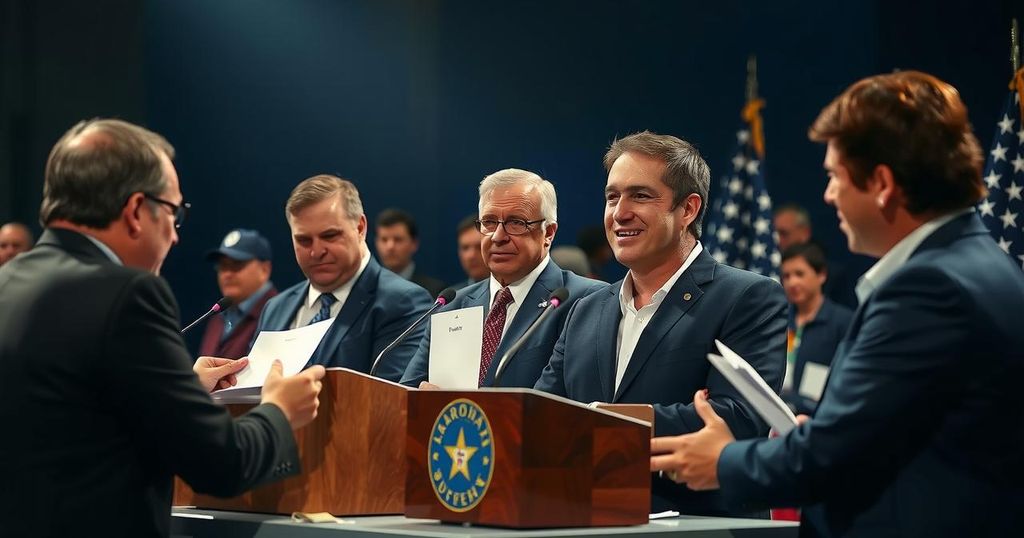Uruguay’s Presidential Run-Off: A Battle Between Moderates in a Tight Race
Uruguay is set to vote in a close presidential run-off between opposition candidate Yamandu Orsi and conservative Alvaro Delgado, with polling indicating a razor-thin margin. The election highlights Uruguay’s relatively moderate political climate compared to the region. Voter engagement from smaller, unaligned parties will be crucial for both candidates as they seek to secure victory amidst economic concerns affecting public opinion.
In a closely contested run-off election, voters in Uruguay are set to choose between opposition candidate Yamandu Orsi of the Broad Front and conservative Alvaro Delgado, who is supported by the Colorado Party. The race is anticipated to be extremely tight, with recent polls indicating a potential margin of fewer than 25,000 votes separating the two moderates. Both candidates aim to appeal to the roughly 8 percent of first-round voters aligned with minor parties, as well as those who abstained previously.
The electoral stakes are high in this small South American nation, characterized by its political stability and moderate political environment. Unlike the polarized landscapes seen in other regional countries such as Argentina and Brazil, Uruguay presents a more nuanced political battle. While Orsi proposes a renewed “modern left” agenda, he assures voters of continuity, steering clear of dramatic policy changes. Conversely, Delgado aims to maintain the successful governance perceived under President Lacalle Pou, who is ineligible for re-election due to constitutional limits.
Uruguay’s broader electoral context illustrates a delicate balance. Both the National Party and the Colorado Party together command almost 42 percent of the previous vote. Nevertheless, neither coalition achieved an absolute majority in the lower house in the recent elections. Orsi, securing 43.9 percent of the first-round votes, holds a Senate majority that he argues enhances his leadership capabilities moving forward. Amidst economic pressures impacting voters globally, analysts remain skeptical about potential shifts in power dynamics, with many citizens not indicating a strong desire for substantial political change.
As voting commences at 8 AM local time, with initial results expected shortly thereafter, the outcome of this election will offer insights into the political sentiments prevailing among Uruguayan voters. The resilience of the Uruguayan economy may favor Delgado, who is positioned as the candidate for continuity amidst rising living costs that have influenced public sentiment internationally.
Uruguay is known for its relative political stability within South America, a region grappling with polarized political climates. As voters head to the polls for a presidential run-off, they will choose between candidates representing continuity and moderate reform. With a small population of approximately 3.4 million, Uruguay’s political landscape has long been marked by lower levels of tension compared to its neighbors, making this run-off particularly significant in the context of global electoral trends.
The run-off election in Uruguay is a testament to the country’s unique political environment, characterized by moderation and a lack of tension compared to other South American nations. Candidates Yamandu Orsi and Alvaro Delgado embody differing visions for the country’s future, yet both face challenges appealing to undecided voters. As economic factors loom large, the outcome of this election could signify whether Uruguay will maintain its political stability or shift towards new governance preferences.
Original Source: www.begadistrictnews.com.au




Post Comment